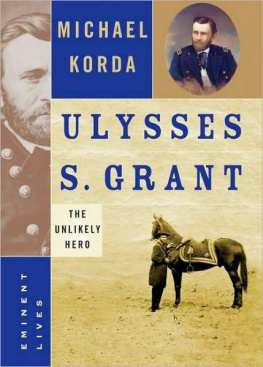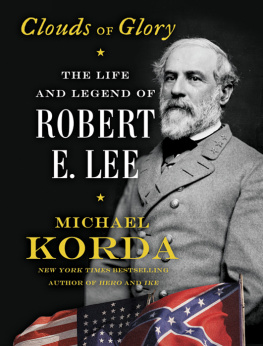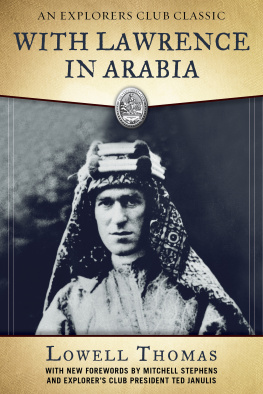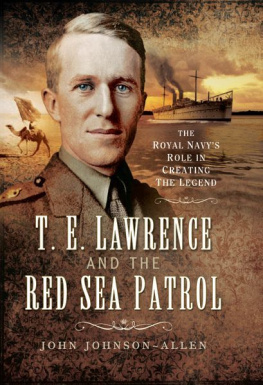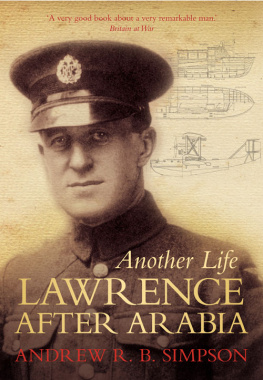Michael Korda - Hero: The Life and Legend of Lawrence of Arabia
Here you can read online Michael Korda - Hero: The Life and Legend of Lawrence of Arabia full text of the book (entire story) in english for free. Download pdf and epub, get meaning, cover and reviews about this ebook. year: 2010, publisher: Harper, genre: Science / Business. Description of the work, (preface) as well as reviews are available. Best literature library LitArk.com created for fans of good reading and offers a wide selection of genres:
Romance novel
Science fiction
Adventure
Detective
Science
History
Home and family
Prose
Art
Politics
Computer
Non-fiction
Religion
Business
Children
Humor
Choose a favorite category and find really read worthwhile books. Enjoy immersion in the world of imagination, feel the emotions of the characters or learn something new for yourself, make an fascinating discovery.

- Book:Hero: The Life and Legend of Lawrence of Arabia
- Author:
- Publisher:Harper
- Genre:
- Year:2010
- Rating:5 / 5
- Favourites:Add to favourites
- Your mark:
- 100
- 1
- 2
- 3
- 4
- 5
Hero: The Life and Legend of Lawrence of Arabia: summary, description and annotation
We offer to read an annotation, description, summary or preface (depends on what the author of the book "Hero: The Life and Legend of Lawrence of Arabia" wrote himself). If you haven't found the necessary information about the book — write in the comments, we will try to find it.
Hero: The Life and Legend of Lawrence of Arabia — read online for free the complete book (whole text) full work
Below is the text of the book, divided by pages. System saving the place of the last page read, allows you to conveniently read the book "Hero: The Life and Legend of Lawrence of Arabia" online for free, without having to search again every time where you left off. Put a bookmark, and you can go to the page where you finished reading at any time.
Font size:
Interval:
Bookmark:
M ICHAEL K ORDA
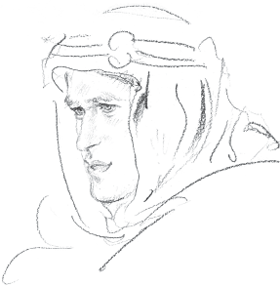
H ERO
The Life and Legend of Lawrence of Arabia

For Margaret, again and always
And not by eastern windows only,
When daylight comes, comes in the light,
In front the sun climbs slow, how slowly,
But westward, look, the land is bright.
Arthur Hugh Clough,
Say Not the Struggle Naught Availeth
I do not pretend to have understood T. E. Lawrence fully, still less to be able to portray him; there is no brush fine enough to catch the subtleties of his mind, no aerial viewpoint high enough to bring into one picture the manifold of his character. I am not a tractable person or much of a hero-worshipper, but I could have followed Lawrence over the edge of the world. I loved him for himself, and also because there seemed to be reborn in him all the lost friends of my youth. If genius be, in Emersons phrase, a stellar and undiminishable something, whose origin is a mystery and whose essence cannot be defined, then he was the only man of genius I have ever known.
John Buchan (Lord Tweedsmuir),
Pilgrims Way
The will is free;
Strong is the soul, and wise and beautiful;
The seeds of godlike power are in us still;
Gods are we, bards, saints, heroes, if we will!
Matthew Arnold,
written in a copy of Emersons Essays
He was indeed a dweller upon mountain tops where the air is cold, crisp and rarefied, and where the view on clear days commands all the Kingdoms of the world and the glory of them.
Winston S. Churchill,
on Lawrence
Oh! If only he had died in battle! I have lost my son, but I do not grieve for him as I do for Lawrence. I am counted brave, the bravest of my tribe; my heart was iron, but his was steel. A man whose hand was never closed, but open. Tell them. Tell them in England what I say. Of manhood, the man, in freedom, free; a mind without equal; I can see no flaw in him.
Sheikh Hamoudi,
on being told of Lawrences death
I t has been ninety-two years since the end of World War I, known until September 1939 as the Great War. Of the millions who fought in it, of the millions who died in it, of its many heroes, perhaps the only one whose name is still remembered in the English-speaking world is T. E. Lawrence, Lawrence of Arabia.
There are many reasons for thiseven during his own lifetime Lawrence was transformed into a legend and a myth, the realities of his accomplishments overshadowed by the bright glare of his fame and celebrityand it is the purpose of this book to explore them, as objectively, and sympathetically, as possible, for Lawrence was from the beginning a controversial figure, and one who very often did his best to cover his tracks and mislead his biographers.
Since the British government began to open its files and release what had hitherto been secret documents in the 1960s, Lawrences feats have been confirmed in meticulous detail. What he wrote that he did, he didif anything he underplayed his role in the Arab Revolt, the 1919 Paris Peace Conference that followed the Allies victory, and the British effort to create a new Middle East out of the shards of the defeated Ottoman Empire in 1921 and 1922. Many of the problems that confront us in the Middle East today were foreseen by Lawrence, and he had a direct hand in some of them. Today, when the Middle East is the main focus of our attention, and when insurgency, his specialty, is the main weapon of our adversaries, the story of Lawrences life is more important than ever.
As we shall see, he was a man of many gifts: a scholar, an archaeologist, a writer of genius, a gifted translator, a mapmaker of considerable talent. But beyond all that he was a creator of nations, of which two have survived; a diplomat; a soldier of startling originality and brilliance; an authentic genius at guerrilla warfare; an instinctive leader of men; and above all, a hero.
We have become used to thinking of heroism as something that simply happens to people; indeed the word has been in a sense cheapened by the modern habit of calling everybody exposed to any kind of danger, whether voluntarily or not, a hero. Soldiersindeed all those in uniformare now commonly referred to as our heroes, as if heroism were a universal quality shared by everyone who bears arms, or as if it were an accident, not a vocation. Even those who die in terrorist attacks, and have thus had the bad luck to be in the wrong place at the wrong time, are described as heroes, though given a choice most of them would no doubt have preferred to be somewhere else when the blow was struck.
Lawrence, however, was a hero in the much older, classical senseit is surely no accident that he decided to translate Homers Odysseyand like the heroes of old he trained himself, from early childhood, for the role. Without the war, Lawrence might never have accomplished his ambition, but once it came he was prepared for it, both morally and physically. He had steeled himself to an almost inhuman capacity to endure pain; he had studied the arts of war and of leadership; he had carefully honed his courage and his skill at leading menlike the young Napoleon Bonaparte he was ready to assume the role of hero when fate presented him with the opportunity. He seized it eagerly with both hands in 1917, and like Ajax, Achilles, Ulysses, he could never let go of it. No matter how hard he tried to escape from his own legend and fame later on, they stuck to himto the very end of his life, and beyond: seventy-five years after his death he remains as famous as ever.
This book, therefore, is about the creation of a legend, a mythic figure, and about a man who became a hero not by accident, or even by one single act of heroism, but who made himself a hero by design, and did it so successfully that he became the victim of his own fame.
His name will live in history, King George V wrote on Lawrences death in 1935.
And it has.

Who Is This Extraordinary Pip-Squeak?
I n the third summer of the worlds greatest war a small garrison of Turkish soldiers still held the port of Aqaba, on the Red Sea, as they had from the beginningindeed since long before the beginning of this war, for Aqaba, the site of Elath during biblical times, and later garrisoned during the Roman era by the Tenth Legion, had been part of the Ottoman Empire for centuries, steadily declining under Turkish rule into a small, stiflingly hot place hardly bigger than a fishing village, reduced by 1917 to a few crumbling houses made of whitewashed dried mud brick and a dilapidated old fort facing the sea. Its site was on the flat, narrow eastern shore amid groves of date palms, in the shadow of a jagged wall of mountains as sharp as a sharks teeth and a steep plateau that separated it from the great desert stretching to Baghdad in the east, north to Damascus and south to Aden, more than 1,200 miles away.
Today a busy, thriving resort city and the principal port of Jordan, a nation which did not then exist, Aqaba is famous for its beaches and its coral reefs, which attract scuba divers from all over the world. It is situated at the head of the Gulf of Aqaba, which is separated from the Gulf of Suez by the spade-shaped southern tip of the Sinai. At the narrow mouthof the Gulf of Aqaba, some archaeologists believe, lies a shallow land bridge over which Moses led the Jews across the Red Sea on their flight from Egypt. From the first days of the war, Aqaba had attracted the attention of British strategists in the Middle East, starting with no less imposing a figure than that remote and awe-inspiring military and diplomatic potentate, the victor of Omdurman, sirdar, or commander in chief, of the Egyptian army and British agent and consul general in Egypt, Field Marshal the Earl Kitchener, KG, KP, OM, GSCI, GCMG, GCIE.
Next pageFont size:
Interval:
Bookmark:
Similar books «Hero: The Life and Legend of Lawrence of Arabia»
Look at similar books to Hero: The Life and Legend of Lawrence of Arabia. We have selected literature similar in name and meaning in the hope of providing readers with more options to find new, interesting, not yet read works.
Discussion, reviews of the book Hero: The Life and Legend of Lawrence of Arabia and just readers' own opinions. Leave your comments, write what you think about the work, its meaning or the main characters. Specify what exactly you liked and what you didn't like, and why you think so.

